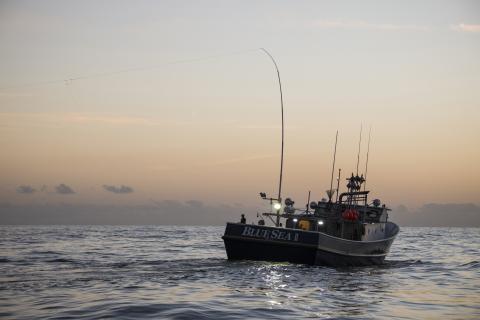After three successful project years, the National Fish and Wildlife Foundation (NFWF) and NOAA announced the fourth year of the Deepwater Horizon Oceanic Fish Restoration Project, which began on January 1, 2020.
Twelve Florida and Louisiana fishing vessel owners are participating. They will take a voluntary break from pelagic longline fishing, and have options to use alternative gear that reduces bycatch of non-target species to continue to bring fish to market.
The pelagic longline fishery in the Gulf of Mexico targets species such as yellowfin tuna, swordfish and mackerel. Many of these species were injured during the 2010 Deepwater Horizon oil spill. The goal of this project is to help restore a portion of the injuries caused by the oil spill. A restored fishery and healthier Gulf will support healthy fish stocks, benefiting vessel owners and others whose livelihoods rely on them.
For the 2020 project year, more than half of the eligible vessel owners applied for the project. The number of applicants far exceeded the capacity of the project. Seven vessel owners from Louisiana and five vessel owners from Florida were selected to participate.
The project has already seen success. Data collected shows clear bycatch reduction benefits from past project years. This research shows that the amount of bycatch species caught using alternative gear was minimal during the project, and many of those that were caught were released alive.
The Oceanic Fish Restoration Project is funded from the early restoration funds provided by BP as part of the legal settlement for the spill. It began in 2017 and is expected to continue through 2022.
Want more details about the project? Visit NFWF’s website >
Learn more about what participants have said about past project years >


